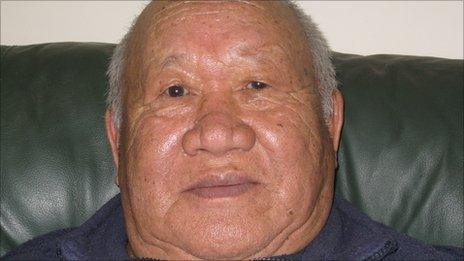Gurkha group ends Downing Street hunger strike after talks agreed
- Published
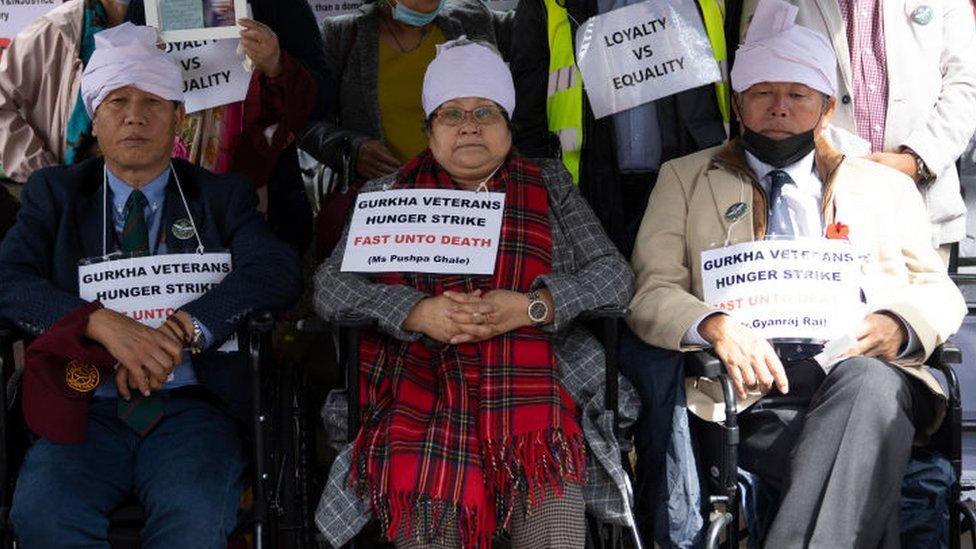
(L-R) Dhan Gurung, Pushpa Rana Ghale and Gyanraj Rai have now ended their hunger strike outside Downing Street
A hunger strike outside Downing Street to protest against Gurkhas' unequal pensions has ended after the government agreed to further talks.
A group had refused food for 13 days as they called for parity with other British Army veterans.
Ministry of Defence officials will meet the Nepali ambassador and the group next month.
A spokesperson said the department was "happy" the group had broken their fast and hoped to "move forward together".
One of the protesters, Dhan Gurung, 60, from Basingstoke, Hampshire, was taken to hospital early on Wednesday after his heart slowed but was later discharged.
Mr Gurung had been protesting in a wheelchair with fellow ex-soldier Gyanraj Rai, 63, and Gurkha widow Pushpa Rana Ghale, 59, who travelled from Nepal.
The Gurkha Equal Rights group confirmed on Twitter that the hunger strike had ended after both governments agreed to talks.
Allow X content?
This article contains content provided by X. We ask for your permission before anything is loaded, as they may be using cookies and other technologies. You may want to read X’s cookie policy, external and privacy policy, external before accepting. To view this content choose ‘accept and continue’.
Gurkhas who retired before 1997 receive a fraction of the pension British-born members of the Army are entitled to.
The trio previously said the strike was a "last resort" but they were "prepared to die" if it meant they would be treated equally.
More than 100 people marched through London in support of the group on Wednesday. Last week, Mr Gurung explained his pension in 1994 was £20 a month and said he and his family lived in poverty because of the British government's "penny pinching".
Gurkhas have served the British Army in two world wars and in the past 50 years in Hong Kong, Malaysia, Borneo, Cyprus, the Falklands, Kosovo, Iraq and Afghanistan.
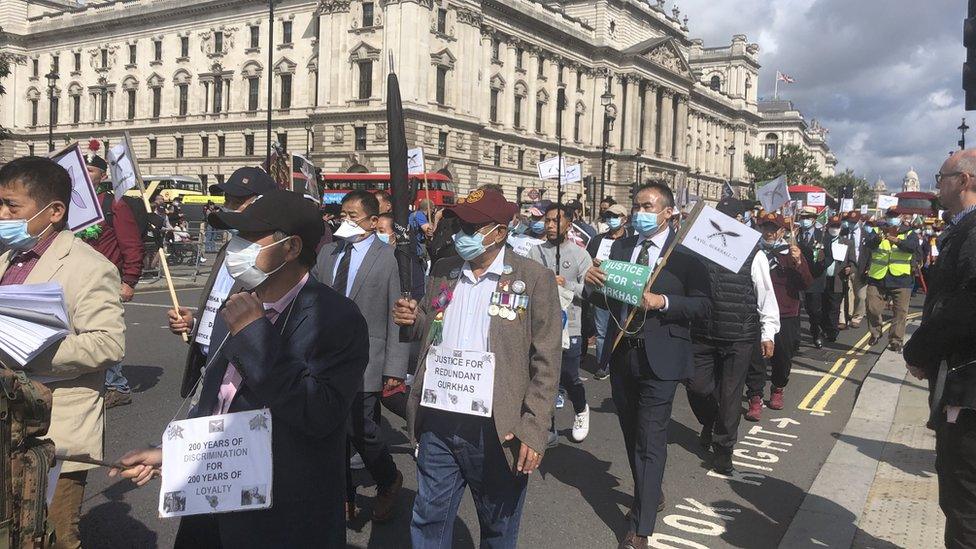
Wednesday's march ended outside Downing Street, where the group continued their protest
Those who retired before 1997, like Mr Gurung, currently receive a fraction of the pension the rest of the British Army receive because the Gurkha Pension Scheme (GPS) was based on Indian Army rates.
Alan Mercel-Sanca, chief executive of the UK Nepal Fellowship Society, said the government had faced "mounting moral pressure".
He said: "The British general public regards our Gurkhas than more British than the British and they've been horrified to see these veterans - over 60 all of them - driven to this."
A Ministry of Defence spokesperson said: "We are happy the Satyagraha group have agreed to break their fast.
"Our primary concern is always the health and welfare of our serving personnel and veterans and this strike was not a course of action we encouraged.
"We look forward to meeting with the group next month alongside the Nepali Ambassador to move forward together."

Follow BBC South on Facebook, external, Twitter, external, or Instagram, external. Send your story ideas to south.newsonline@bbc.co.uk, external.
Related topics
- Published11 August 2021
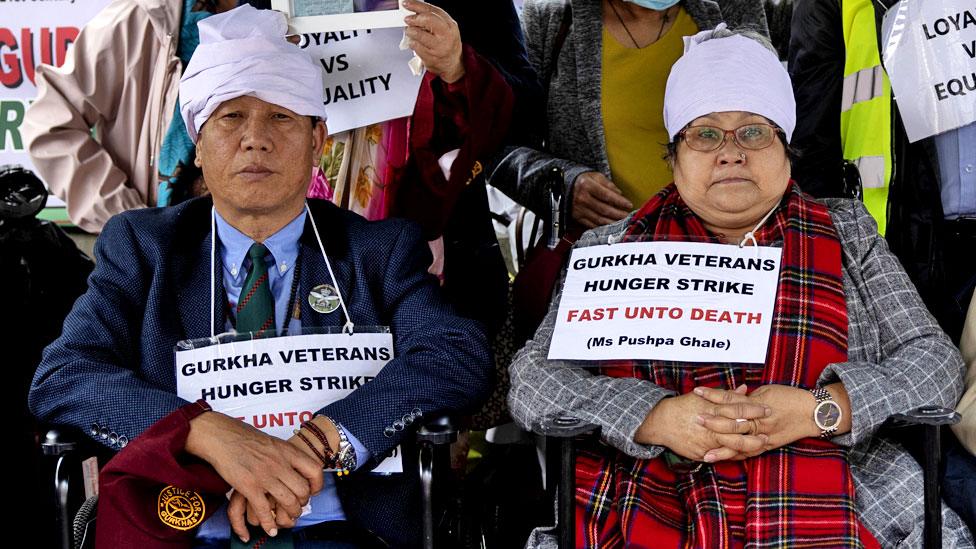
- Published10 March 2021
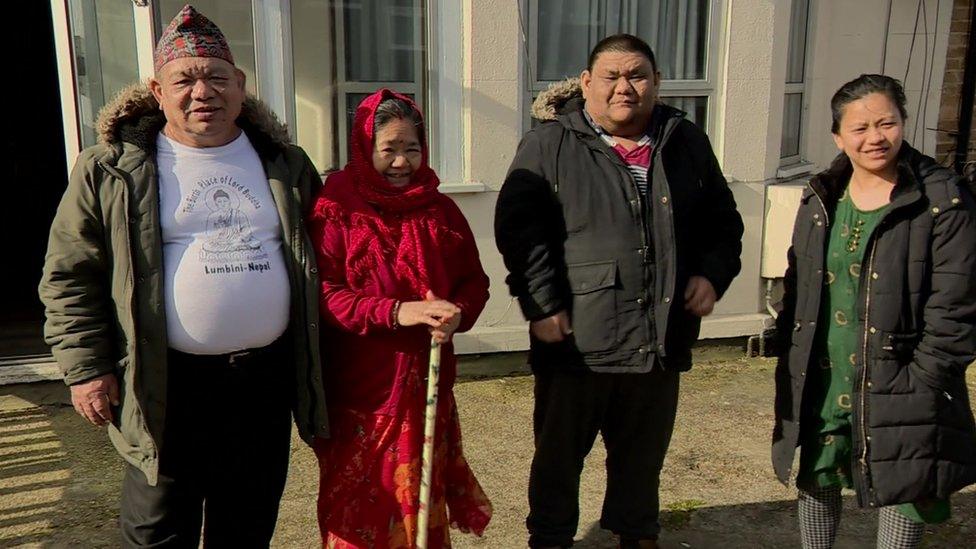
- Published31 July 2011
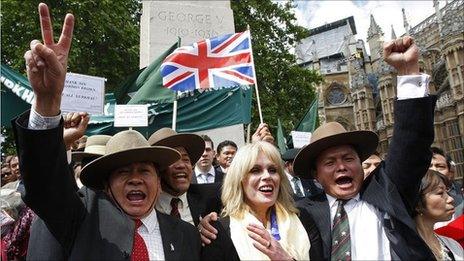
- Published31 July 2011
